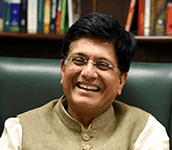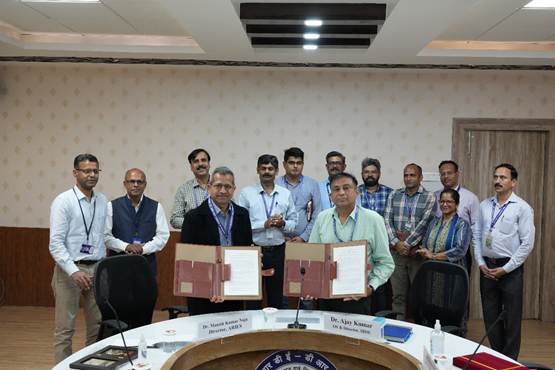MAY 14: In a significant move to bolster India’s capabilities in space monitoring and surveillance, the Aryabhatta Research Institute of Observational Sciences (ARIES), an autonomous institute under the Department of Science and Technology (DST), has signed a Memorandum of Understanding (MoU) with the Instruments Research & Development Establishment (IRDE), a key laboratory of the Defence Research and Development Organisation (DRDO).
The MoU, signed on May 13, 2025, at IRDE Dehradun, marks the beginning of a strategic partnership between these two premier research institutions. The agreement was formalized by Dr. Manish Kumar Naja, Director of ARIES, and Dr. Ajay Kumar, Director of IRDE. Present at the signing ceremony were senior scientists and officials from both organizations, including Dr. Brijesh Kumar and Dr. T. S. Kumar from ARIES, and Ms. Ruma Dhaka, Dr. Sudhir Khare, Dr. Manavendra Singh, Mr. Abhijit Chakraborty, and Mr. Bharat Ram Meena from IRDE.
ARIES, located in Nainital, is renowned for its contributions to astronomy, astrophysics, and atmospheric sciences. It houses some of the country’s most advanced observational infrastructure, including the 3.6-meter Devasthal Optical Telescope and the ST Radar system. IRDE, based in Dehradun, plays a pivotal role in developing Electro-Optical surveillance systems for India’s Armed Forces across multiple platforms, including ground, naval, aerial, and space domains.
Under this MoU, the two institutions will collaborate on a broad range of initiatives. These include the shared use of ARIES’ observational facilities for space object tracking and monitoring, the joint development of Electro-Optics-based systems for both astronomical and Space Situational Awareness (SSA) applications, and the advancement of image processing and data analysis techniques using artificial intelligence and machine learning (AI/ML). The agreement also envisions regular training sessions, knowledge exchange, and capacity building through joint R&D efforts.
With both institutes situated in Uttarakhand, their close geographic proximity is expected to facilitate frequent interaction, streamlined access to facilities, and effective coordination of joint scientific and technical activities. This collaboration is seen as a crucial step in enhancing India’s indigenous capabilities in ground-based SSA and supporting national security and space exploration objectives.




















